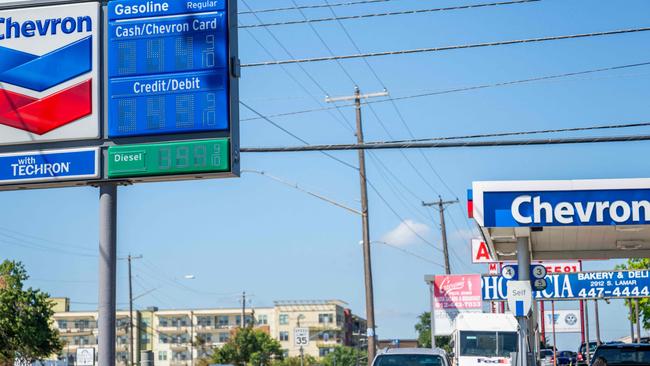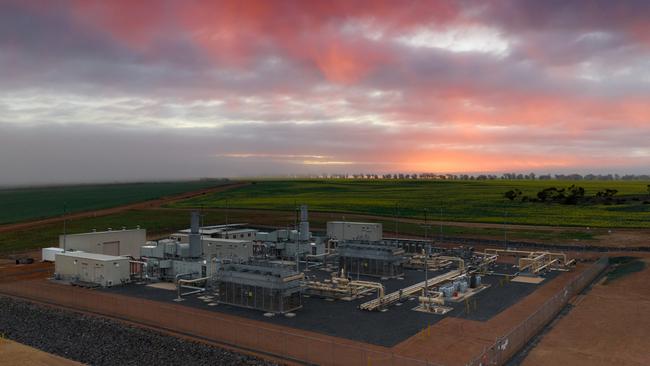Gas isn’t transitional but a ‘forever fuel’, says Chevron executive Jeff Gustavson
Australia is divided about the future of gas, but a top Chevron executive says gas will be needed forever, and the country could lead the world if it embraces carbon capture and storage.
Business
Don't miss out on the headlines from Business. Followed categories will be added to My News.
Gas as a fuel source will be needed forever and Australia should embrace carbon capture and storage to position itself to profit, a top Chevron executive says.
The $91bn LNG export industry is one of Australia’s most important industries, underpinning the country’s $2 trillion economy and providing tens of thousands of jobs. But the future of gas remains uncertain, and policymakers are under intense pressure to curtail its use amid warnings of catastrophic climate change without significant reductions in the use of fossil fuels.
Jeff Gustavson, president of new energies at Chevron, said the oil and gas giant is making significant investments in new fuel sources such as hydrogen, but gas will be needed forever and supporting carbon capture and storage will allow Australia to meet its carbon emission reduction targets without significantly uprooting its $2 trillion economy.
“Natural gas is not a bridge fuel but a forever fuel,” he said.
“The policy support is not entirely clear … but Australia has the pieces in place to scale [carbon capture and storage]. It would not just be Australian emissions that you are capturing, but emissions from elsewhere, and you would be helping them to progress on their lower carbon journey.”

Carbon capture and storage sees gas producers typically capture the carbon dioxide when extracting the fuel and then inject the emissions back underground.
Mr Gustavson spoke to The Australian from Canberra ahead of meetings with the Albanese government, where he is expected to push the federal government to support efforts to grow carbon capture and storage in Australia.
But Mr Gustavson’s vision for the role of gas breaks with a sizeable group of Australia’s electorate, and the schism around the future of an industry threatens to muddle the country’s policy settings.
Prime Minister Anthony Albanese has declared the technology viable, and Resources Minister Madeleine King earlier this year insisted carbon capture and storage was the “single biggest opportunity for emissions reduction in the energy resources sector is through carbon capture and storage”.
But Industry Minister Ed Husic in May said he has not seen proof that carbon capture and storage works “at scale” as he highlighted recent difficulties at Chevron’s carbon capture and storage facility.
Chevron’s Gorgon carbon capture and storage has struggled to meet capacity targets due to technical problems involving the underground pressure in the storage site on Barrow Island.
Mr Gustavson acknowledged Chevron had experienced some technical issues, but said efforts to discredit the technology were misleading.
“We have stored almost 8.5m tonnes of carbon dioxide over the last several years. That is a lot of carbon dioxide,” he said.

While Australia is seemingly split on the future of carbon capture and storage, other jurisdictions – most notably the US, are pushing hard. The US last year passed the Inflation Reduction Act, which provides big incentives for carbon capture and storage, and Britain’s £20bn ($39.1bn) investment in such projects over the next two decades.
Australia is also under growing environmental pressure. It has legislated a target to cut carbon emissions by 43 per cent by 2030, and reach net-zero by 2050. A rapid reshaping of its electricity grid is a key pillar of the plan, but Australia is struggling to develop sufficient renewable energy generation capacity to replace coal.
Coal is the dominant source of electricity in Australia, and gas proponents insist the fuel source should be embraced due to having lower carbon dioxide emissions. But opponents insist gas still emits methane, which contributes to global warming.
More Coverage
Originally published as Gas isn’t transitional but a ‘forever fuel’, says Chevron executive Jeff Gustavson





